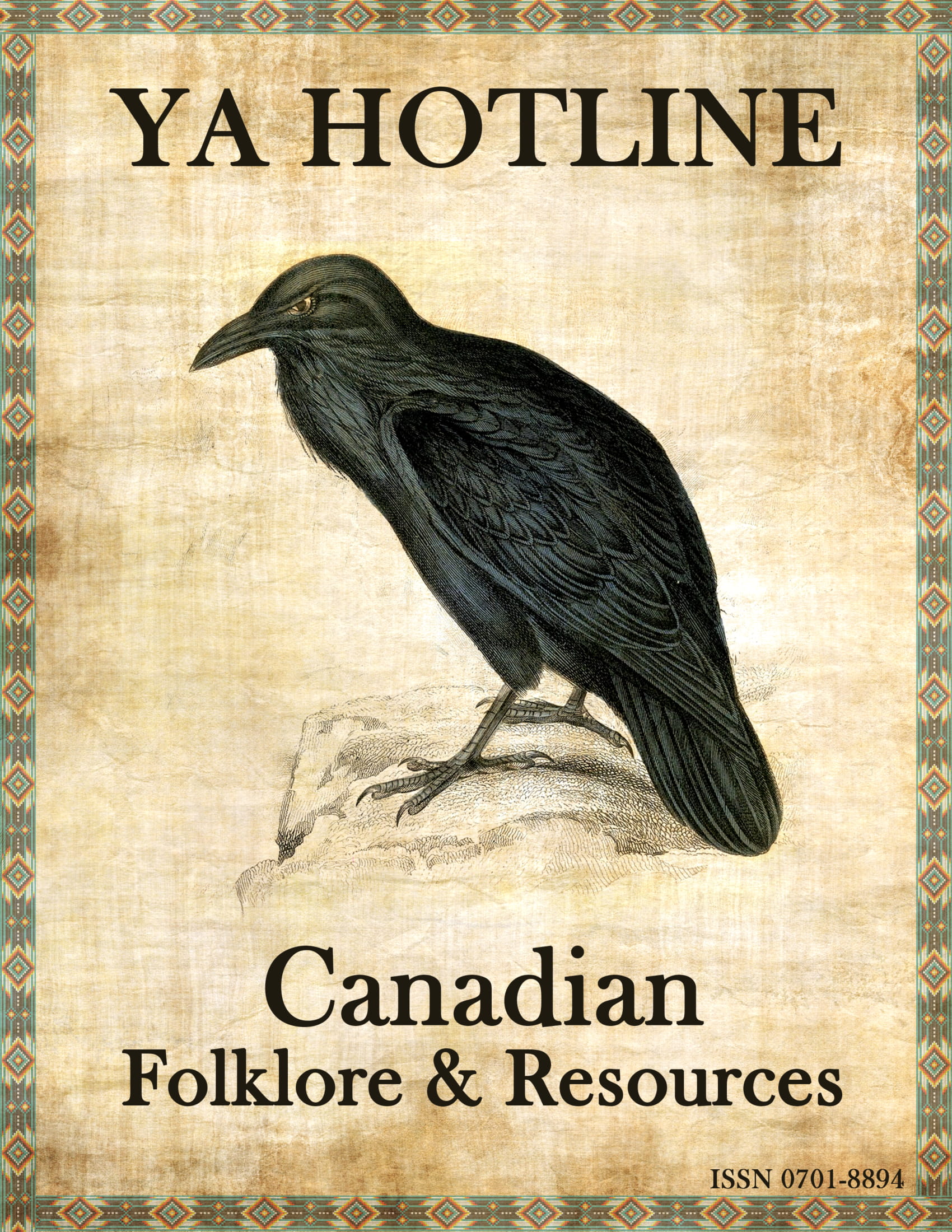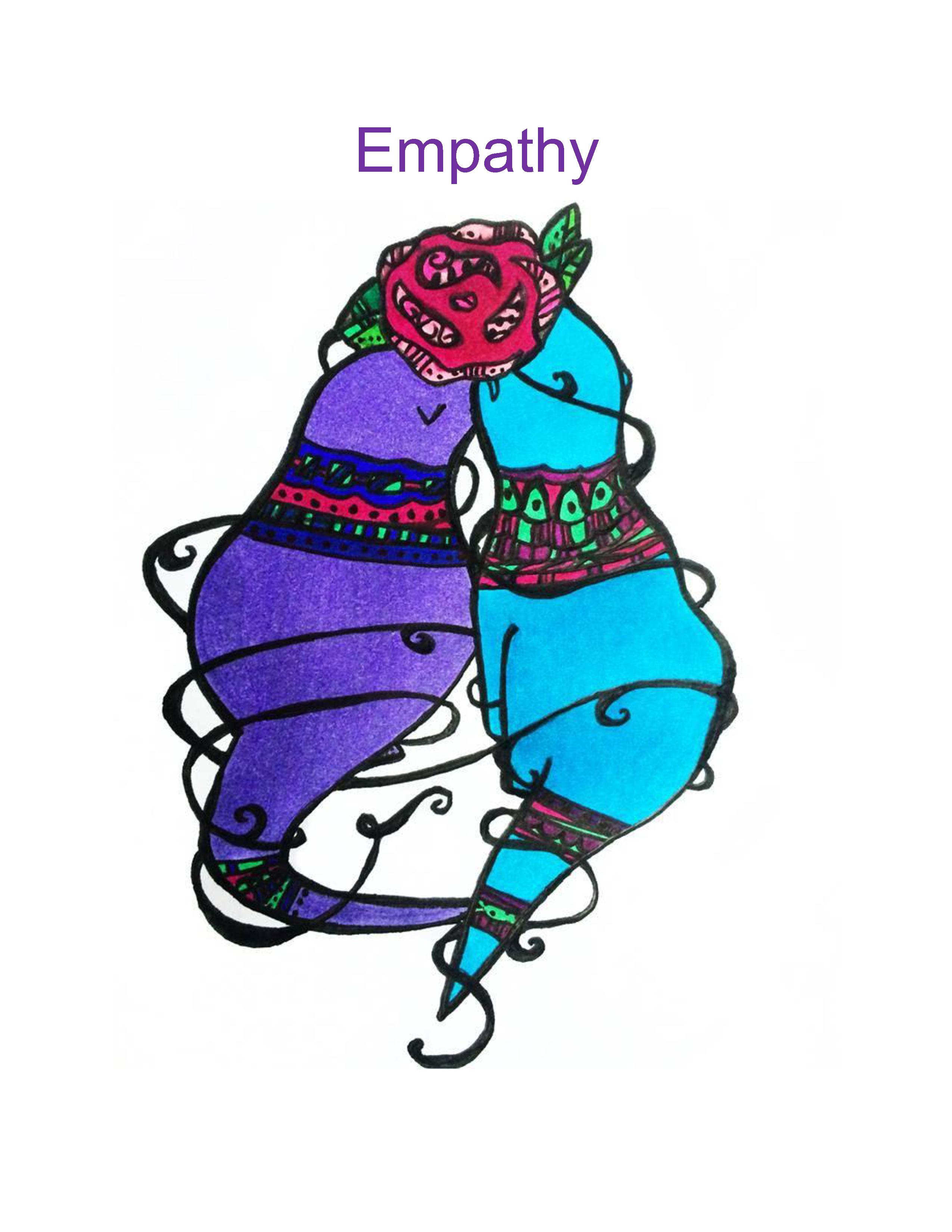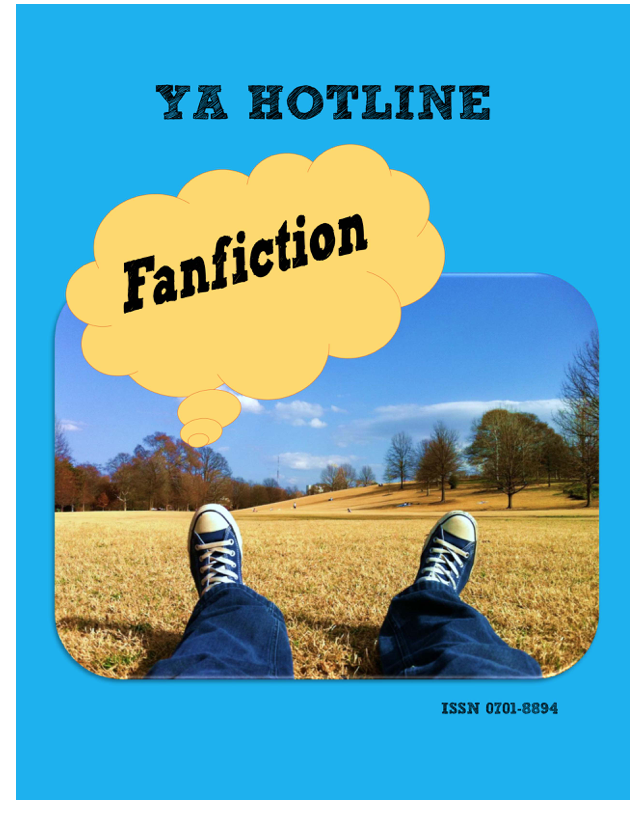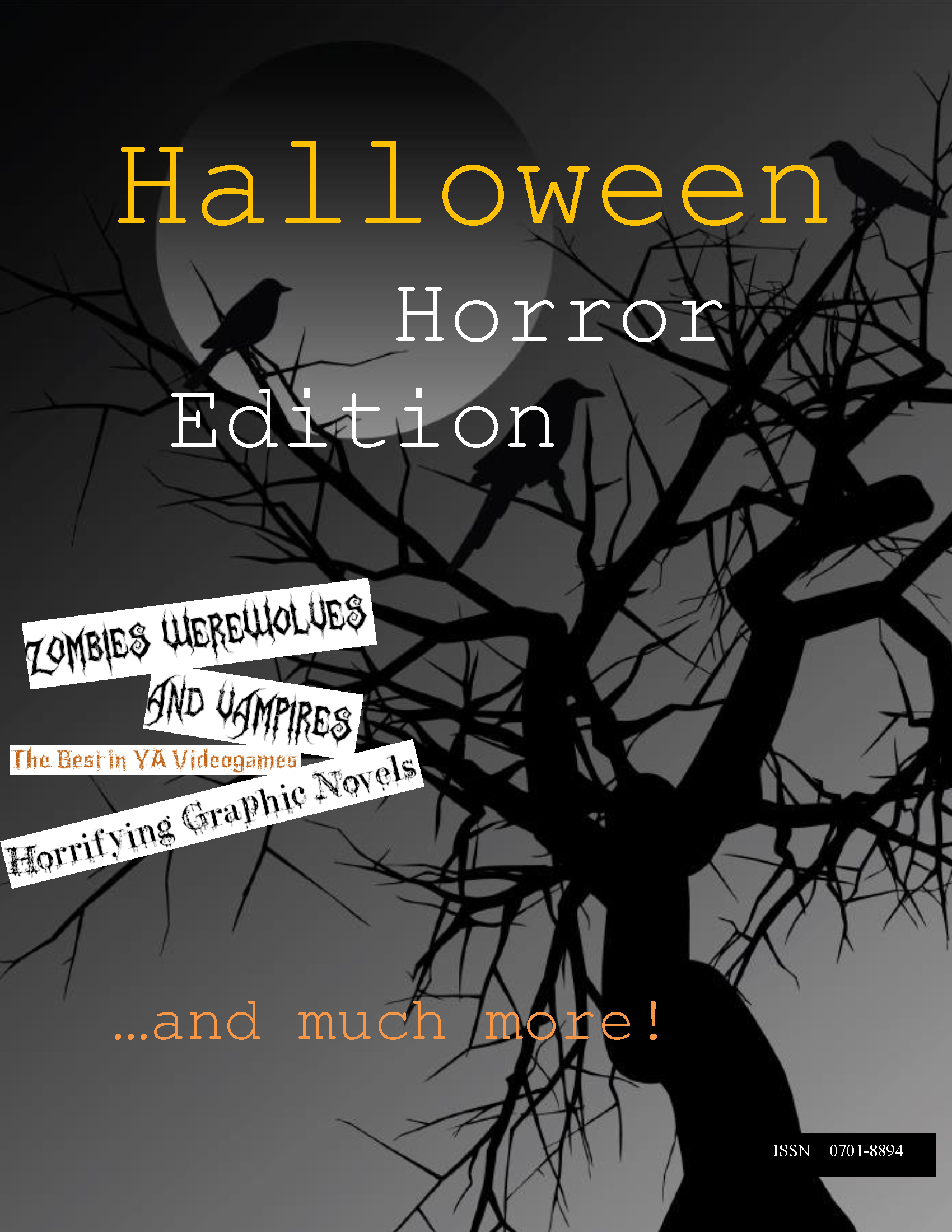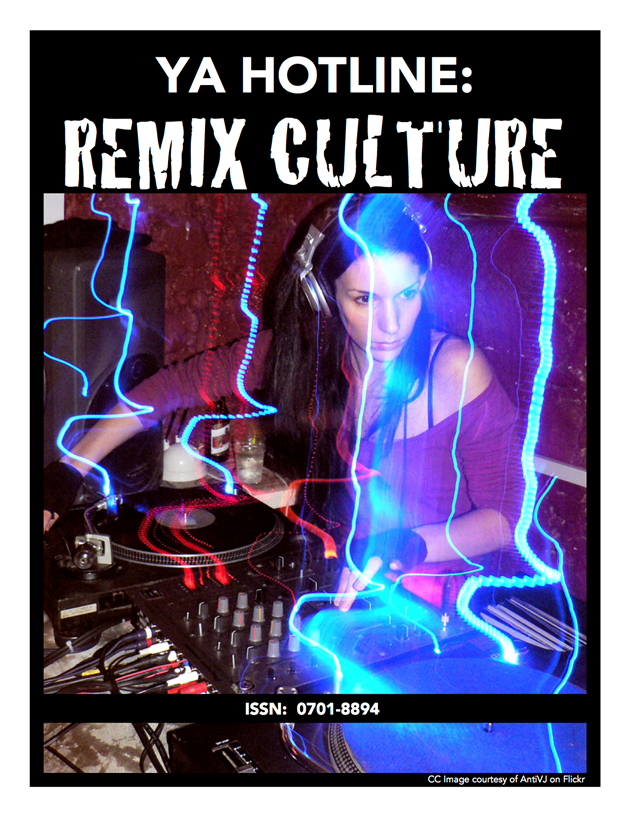Archives
-
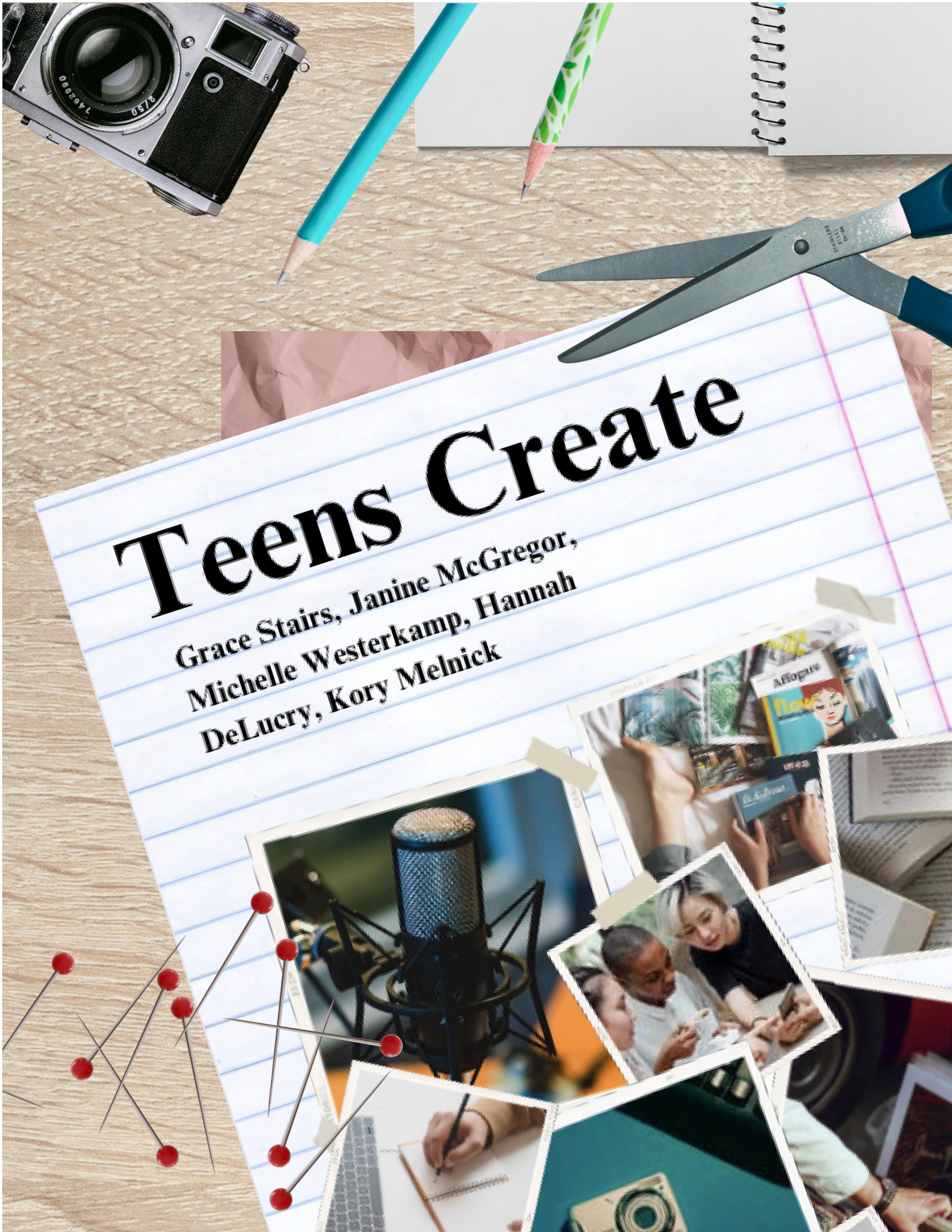
TEENS CREATE
No. 121 (2025)The following issue of the YA Hotline, Teens Create, is all about empowering young adults to create content in various ways. From creating TikToks to creative writing, teens have so much choice on how they can be creative. Delve into Teens Create to find the perfect book lists, interviews, articles, and programs on teen content creation.
-
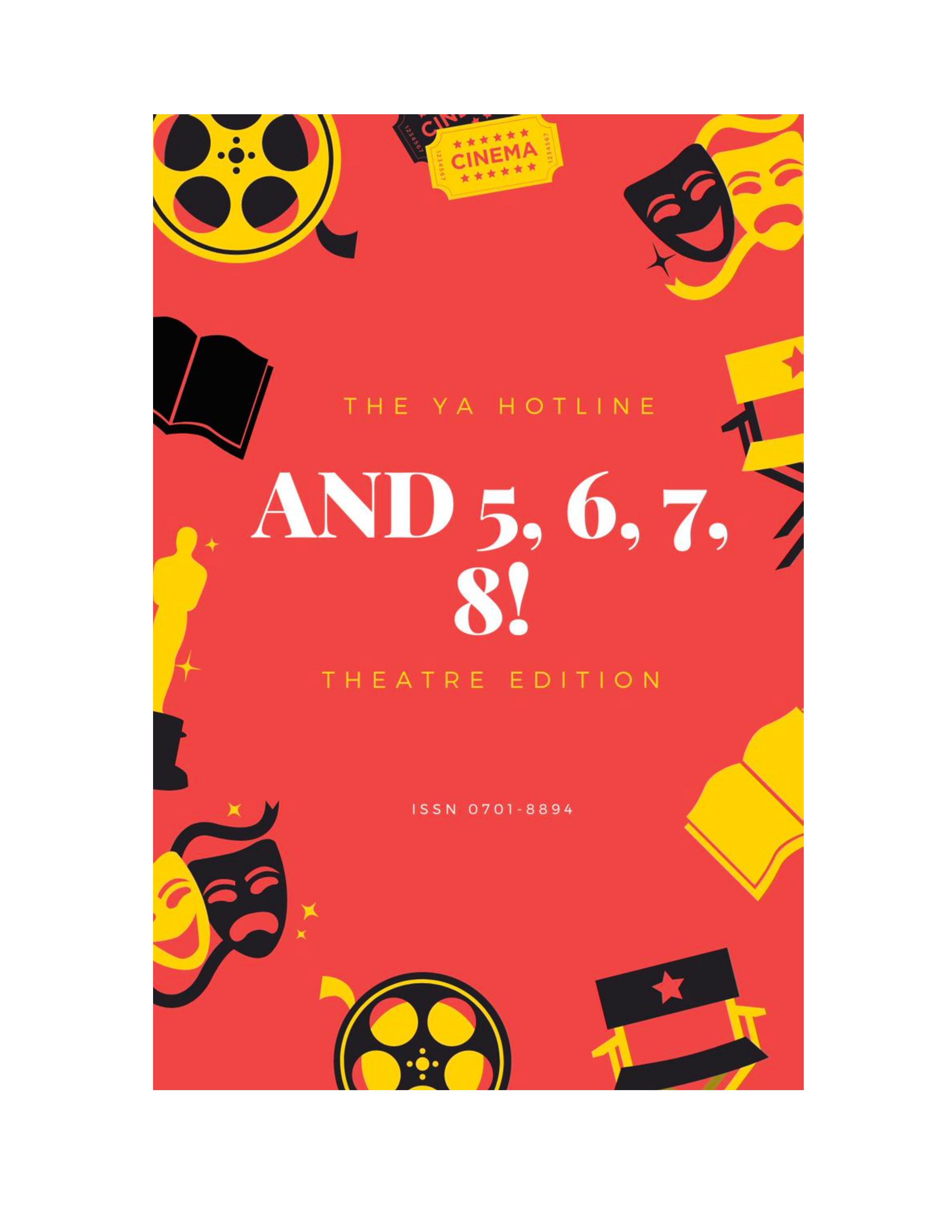
And 5, 6, 7, 8...THEATRE EDITION!
No. 120 (2024)This Hotline covers a wide range of resources, lists, articles, and more related to theatre, particularly theatre aimed at youth and young adults. In it, you will find programming guides, book, reviews, movie lists, theatre lists, blog posts, and other resources to help you or a young adult immerse themselves in the world of theatre. Below are abstracts for each article created, as well as small biographies of the contributing authors. We hope you enjoy this hotline!
-
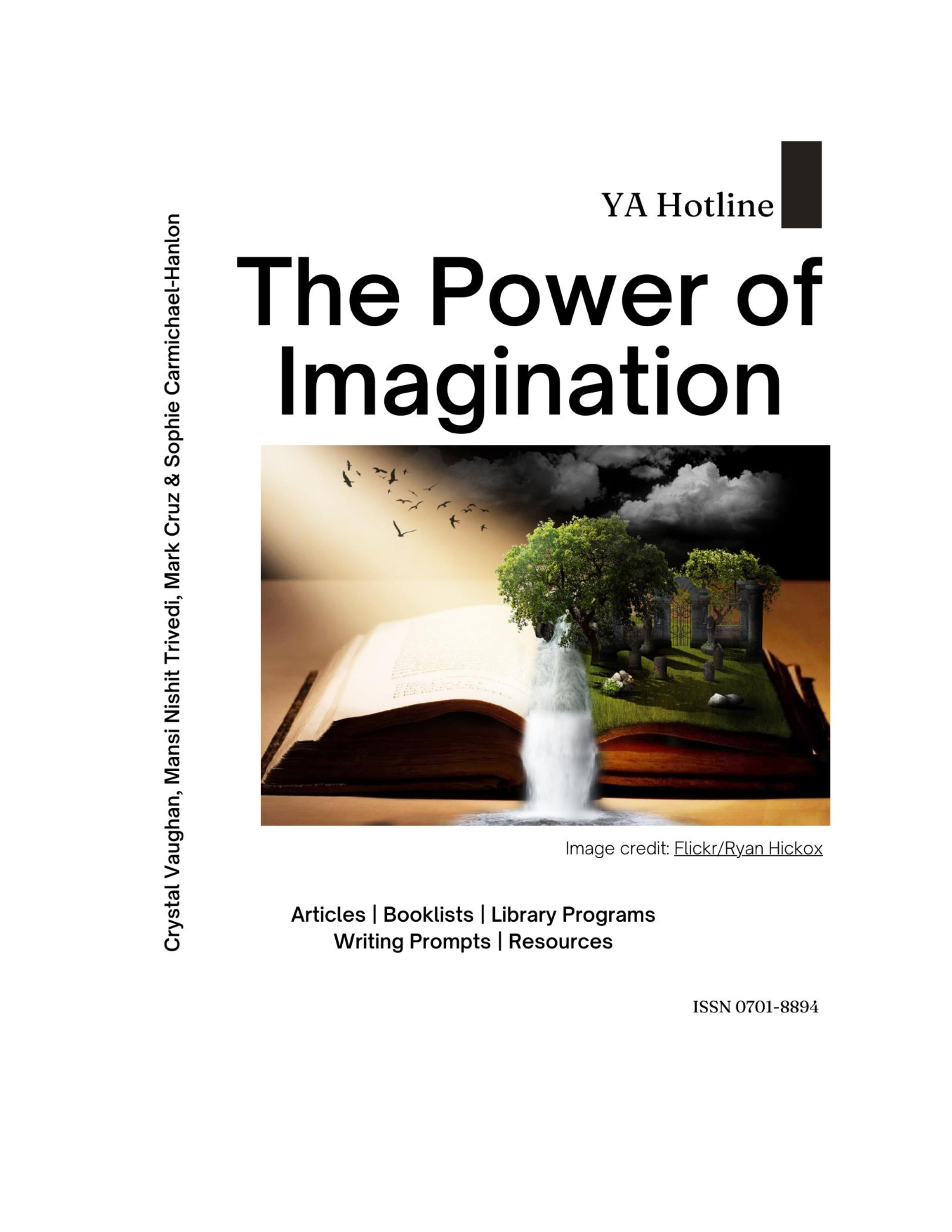
THE POWER OF IMAGINATION
No. 119 (2024)For teenagers and young adults today, it is difficult to dream. The social isolation of the COVID-19 pandemic, warnings of armed conflict due to instability within the current geo-political landscape, and overwhelming anxieties produced by the development of an ongoing climate crisis – the already challenging experience of adolescence is compounded by times of extreme uncertainty. To grow up in such a world can be an experience marked with apathy, despair, and sadness about the future. How can we help a generation of young people dare to imagine again?
This issue of YA Hotline explores the ‘power of imagination’ and poses a critical question: how might imagination be incorporated into library services? Given their historic proximity to learning and adolescent life, libraries have an important role to play in creating imaginative spaces, programming, and collections for their young adult patrons. This issue approaches the topic of imagination broadly, as a site for speculation, optimism, fantasy, and transformation within the minds of teenagers and young people. Libraries are uniquely positioned to promote imaginative learning; a generation that is able imagine something better, is the generation that will bring something better into reality.
-

A QUEER GUIDE TO YA VAMPIRE MATERIALS
No. 118 (2023)Vampires have been a popular staple of fiction for decades due largely in part to their fluidity. Able to serve as both hero and villain depending upon the author, vampires have a unique relatability to audiences due to their permanent status as an outsider, as the other, to an otherwise normal world. For teens trying to figure out their own identity, which often means pushing back against the norm, vampire fiction offers a way to feel powerful and to explore subject matter that may otherwise be considered taboo. In this hotline, we have provided articles examining the history and evolution of the vampire in fiction as well as a number of vamp-inspired resources including writing guides, work-out routines, book & movie reviews, and even a music playlist to help encourage both teens and adults follow their interests, no matter how ‘macabre’, and embrace the other.
-
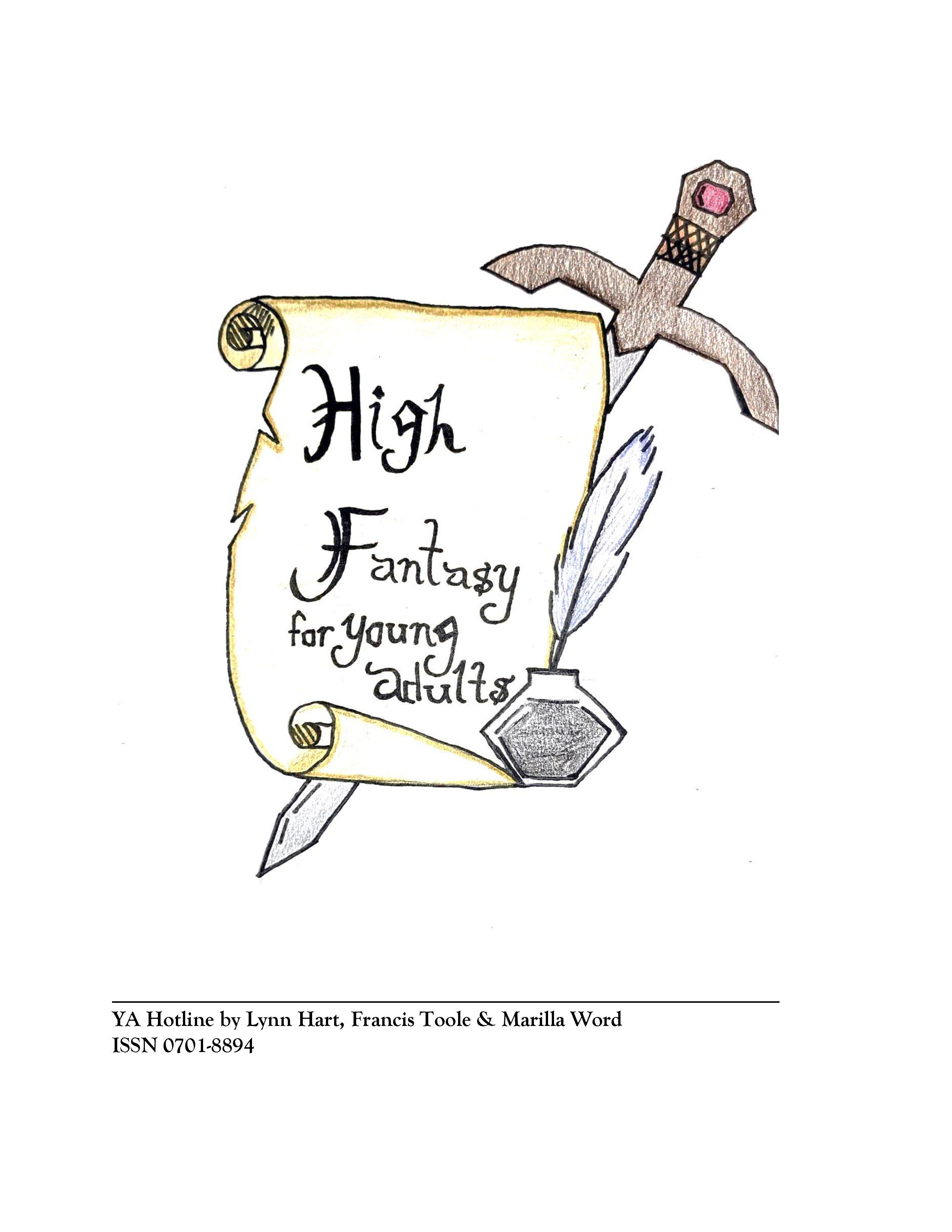
HIGH FANTASY
No. 117 (2023)High Fantasy is a timeless young adult genre that continues to engage teens today. In this issue of the YA Hotline we explore the genre and the books, movies, video games and programs that are a part of this classic genre.
-
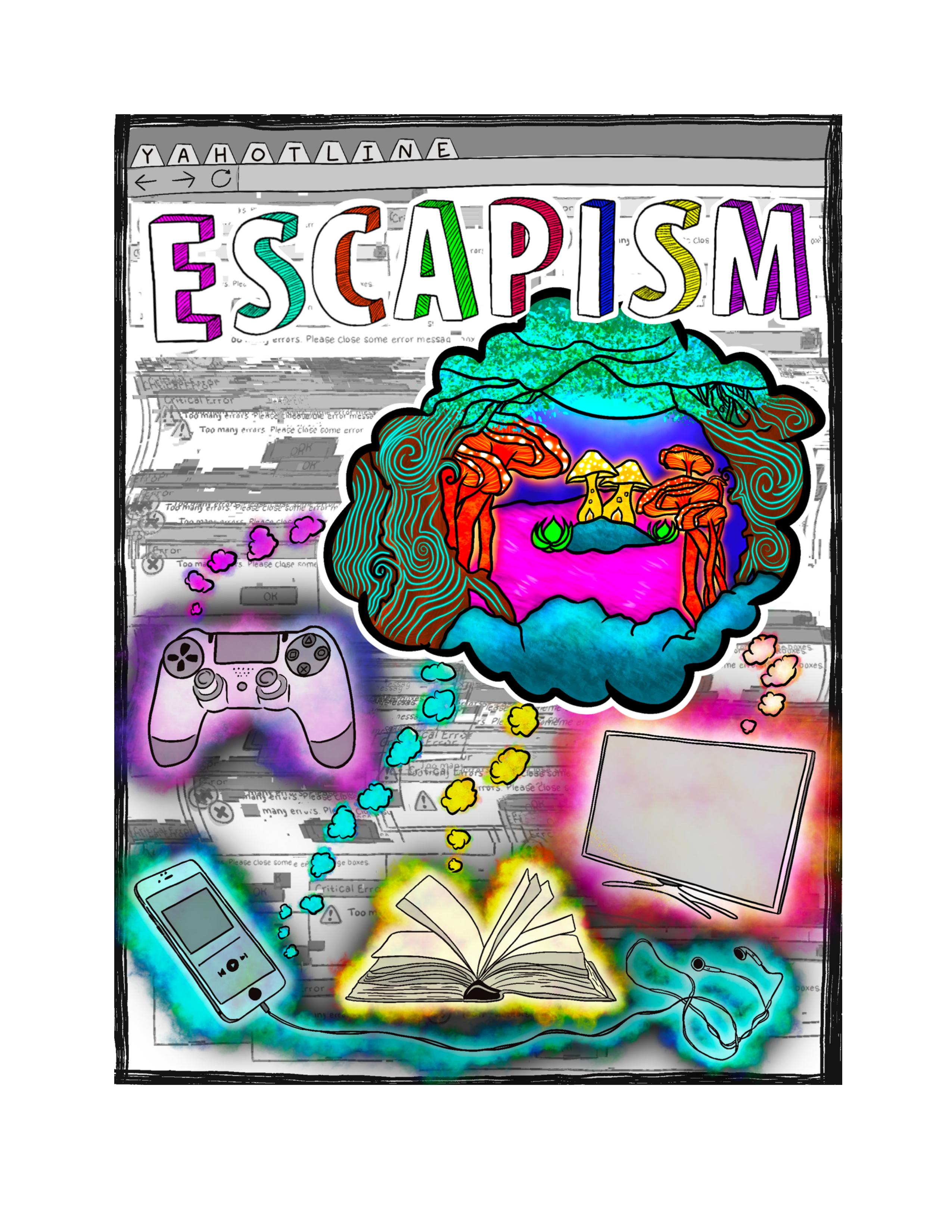
ESCAPISM
No. 116 (2022)Do you feel like you need a break? Has the state of the world got you down recently? Well, fear no more! The Escapism issue of the YA Hotline is here to the rescue. Get ready to pack your bags and go on a plethora of adventures ranging from Dungeon‘s and Dragons to fictional desert towns where pterodactyls reign supreme. The Escapism issue can give you a taste of all your reality bending needs whether you want to start a library pro-am, recommend books or other media, or simply because you want an escape. Get ready to dive in!
-
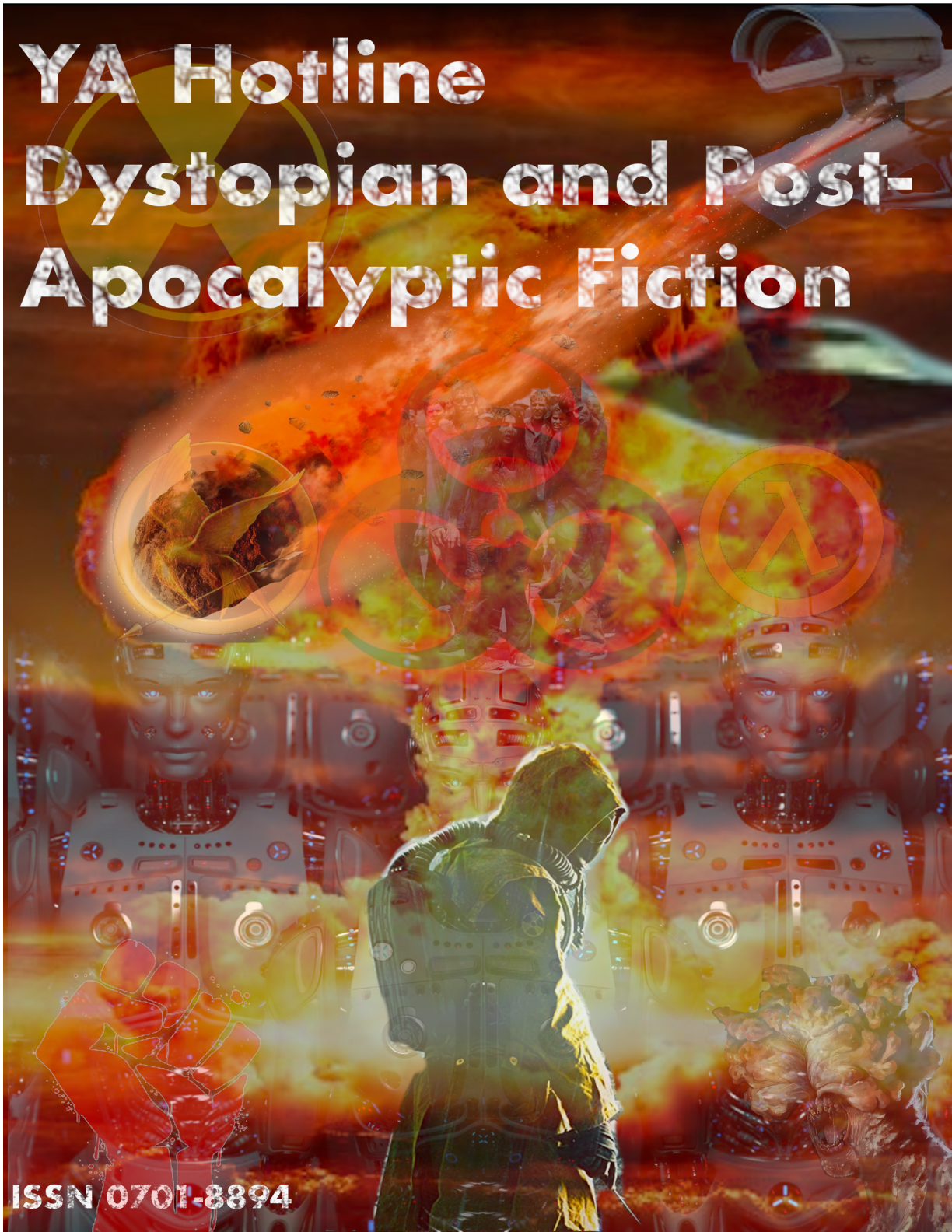
DYSTOPIAN AND POST-APOCALYPTIC FICTION
No. 115 (2022)This issue of the YA Hotline explores dystopian and post-apocalyptic young adult literature. Given the genres popularity and recent relevancy in light of everything that has happened in 2020 and beyond, they are important genres for teen librarians to consider when making book recommendations and developing programs. The genres have always featured strong, empowering lead characters who take control of their situation, something which teens worldwide need now more than ever. This issue comprises opinion pieces, helpful articles and infographics on the genre, programming ideas, and tools such as bibliographies to help teen libraries make the most of the genre.
-
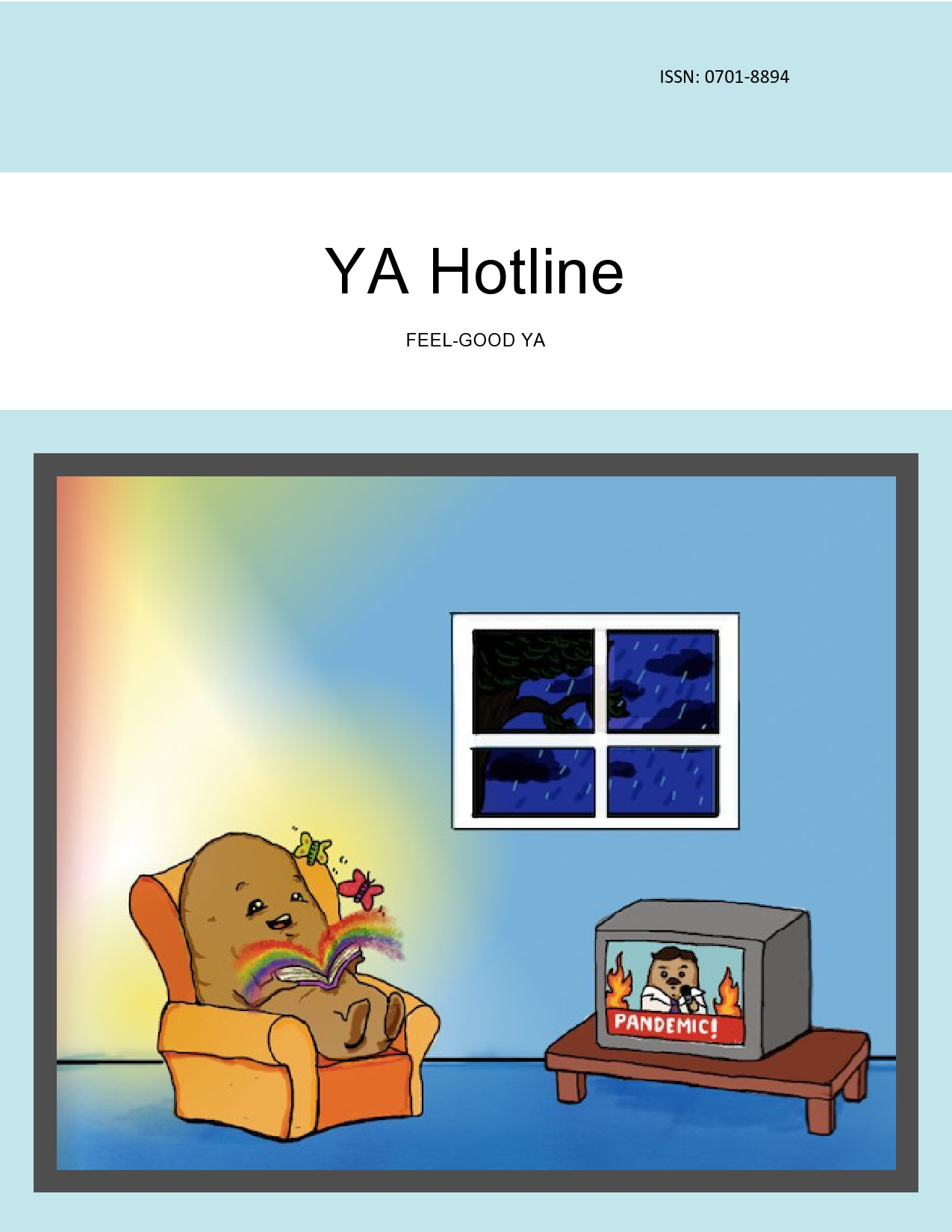
FEEL GOOD YA: FEELING GOOD IN DIFFICULT TIMES
No. 114 (2021)This issue focuses on feel-good YA resources. Includes articles on the use and impacts of bibliotherapy on teens as a way of working through emotions, the importance of providing materials featuring diverse characters and diverse experiences without solely focusing on issues of struggle to reflect the whole life experience, and positive psychology and the power of reading on creating positive emotional experiences during the difficulty of the COVID-19 pandemic. Also included are a series of book reviews and booklists of feel-good YA titles. Finally, a review of the Queer Books for Teens book finder tool and list of uplifting programming ideas with instructions are included.
-
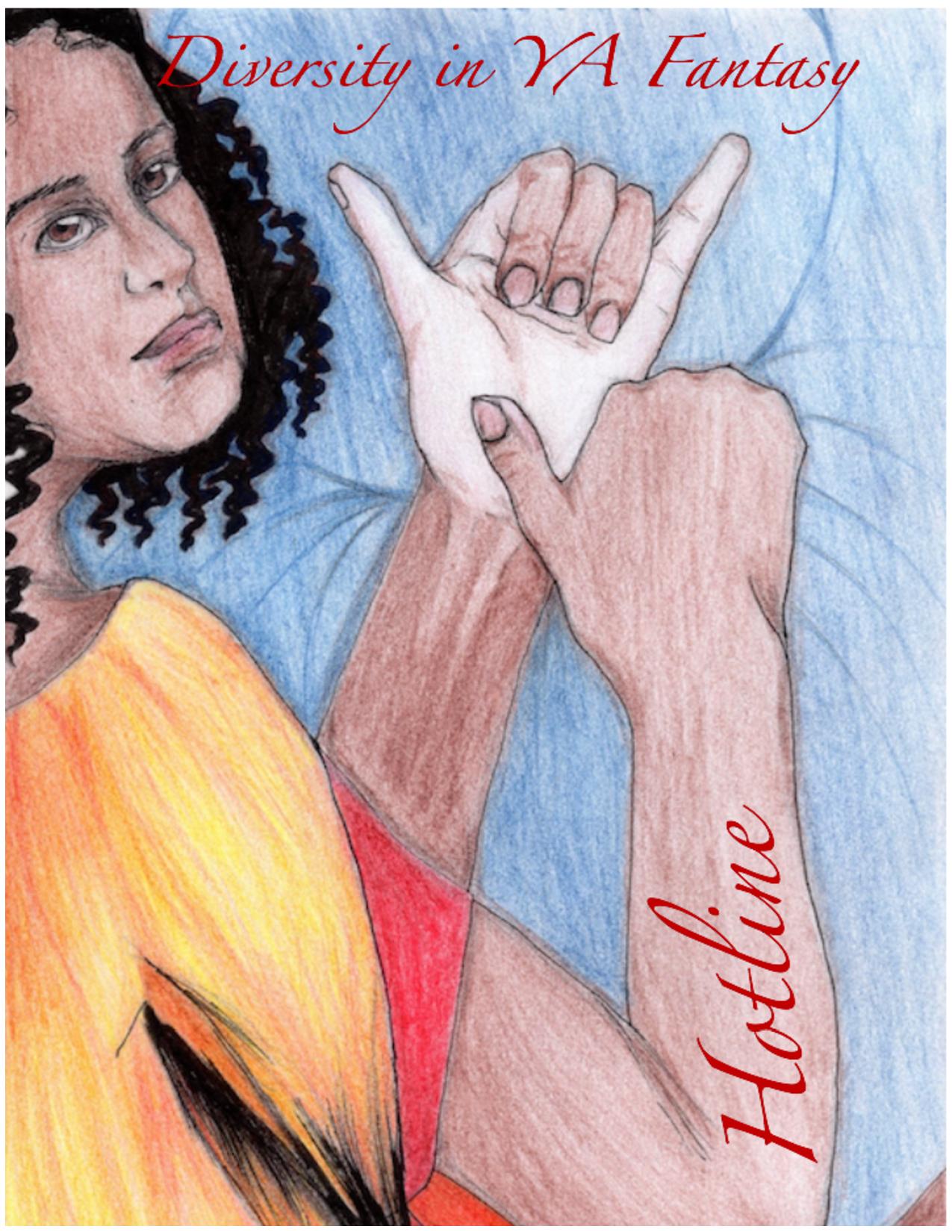
DIVERSITY IN FANTASY
No. 113 (2021)This issue explores the increased diversity of characters and situations in YA fantasy -
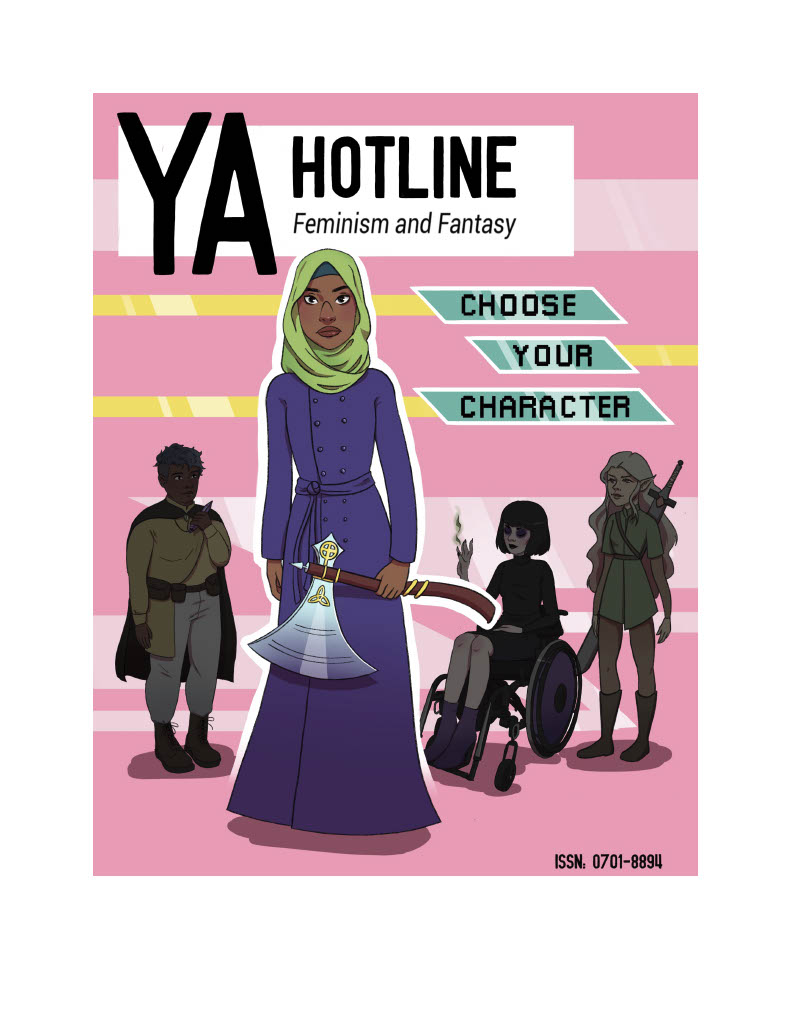
FEMINISM AND FANTASY
No. 112 (2020)This issue of the YA Hotline explores Feminism and Strong Female Characters in fantasy literature. These topics are important for libraries and young adult workers to know about because they affect how girls see themselves in the literature they are reading. If librarians can recommend books that have strong females in them then girls and even other readers will have good role models to look to. There are several annotated bibliographies that have compiled different lists relating to feminism and female characters as well as several articles exploring individual characters and books that could be considered good resources for teens to read.
-
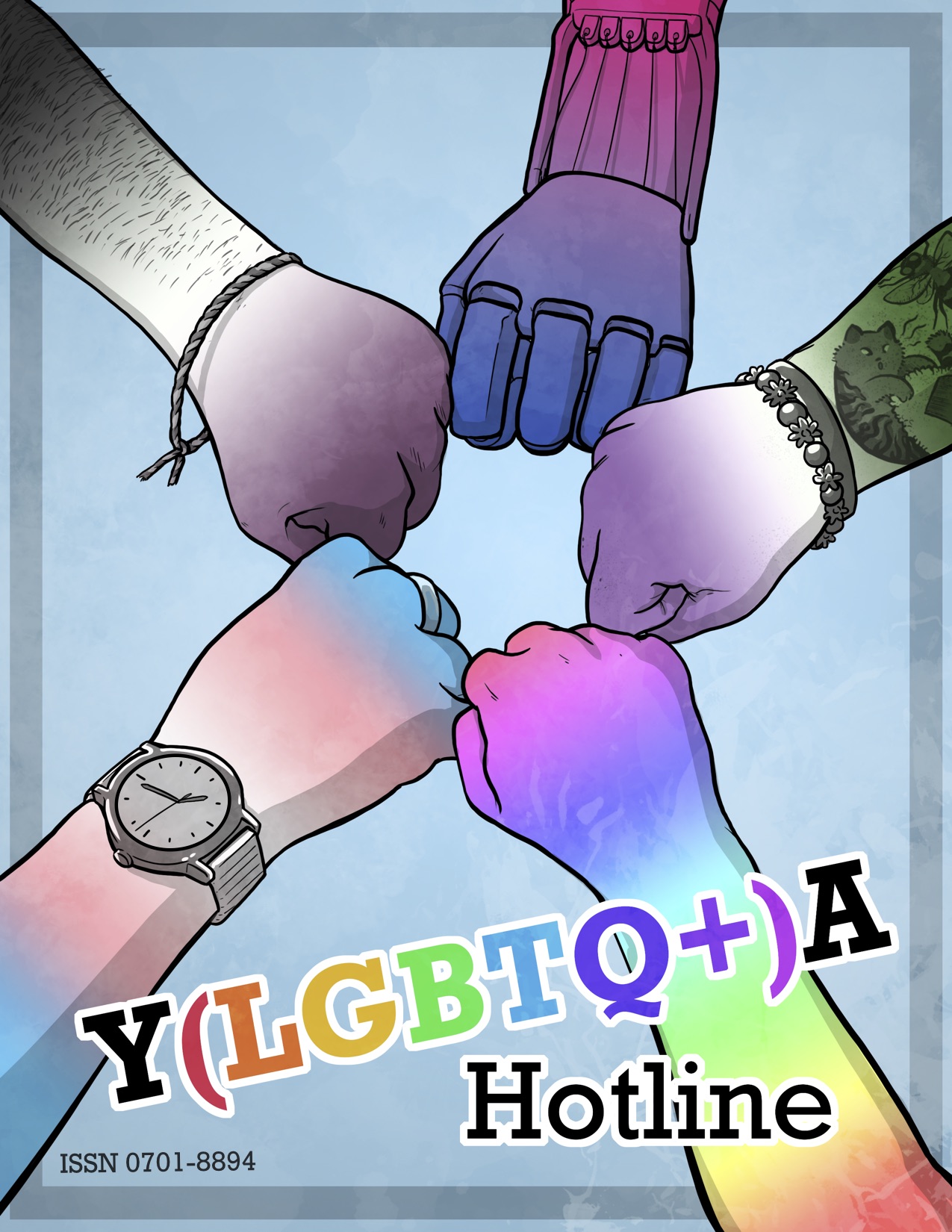
Y(LGBTQ+)A HOTLINE
No. 111 (2020)This issue of the YA Hotline features LGBTQ+ book lists, program guides, reviews, an artist interview, and a glossary of terms. Articles provide critical analysis on topics such as books with happy endings and the evolution of LGBTQ+ character portrayal. Discussions of non-traditional print media, such as video games, fanfiction, and webcomics, are also present in the issue. We hope that this issue of YA Hotline provides professional readers with ideas for implementing changes to make materials, programs, and learning environments more welcoming and inclusive for LGBTQ+ teens. -

Democracy 2.0
No. 110 (2019)Young people are growing up in a world saturated with digital media. Teens are not only using the internet to consume music, entertainment and pop culture but also as a way of participating in political engagement on local and global levels. In the online world, the lines between celebrity culture, politics and global issues can become obscured. This instalment of the YA Hotline aims to educate library professionals about how these issues intersect, so they can better serve and relate to their young adult patrons. This issue provides a range of compelling content, including informative articles, a program planning guide and recommendations for books and resources to support engaged and informed youth.
-
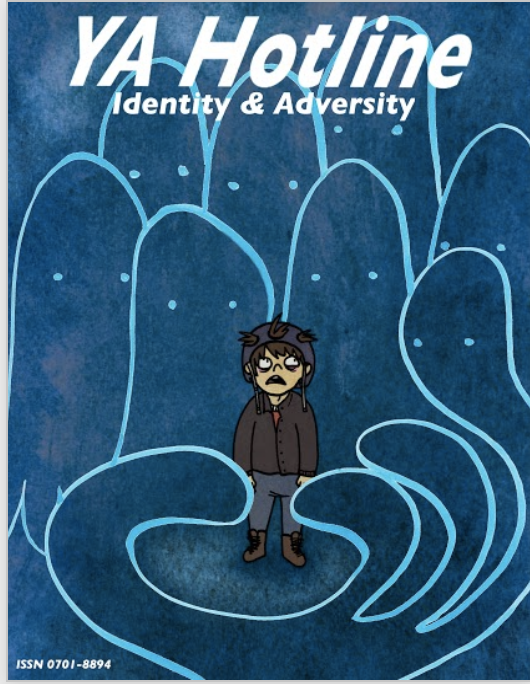
Identity and Adversity
No. 109 (2019)This issue of the YA Hotline delves into the various struggles of identity and adversity that teens experience. Most teens, at some point, will experience periods of adversity. Sometimes these trying experiences will take the form of challenging social relationships, identity development, physical changes or differences, experiencing a loss, and so on. However, through this issue we strive to not only explore the often difficult experiences of marginalized youth, but also emphasize the potential for strength and growth that can come out of adversity. We see this issue as contributing to the field of youth librarianship by providing analytical discussions of youth identity, adversity, and perseverance, as well as important resources for supporting young people experiencing hardship and the challenges of self-discovery.
-
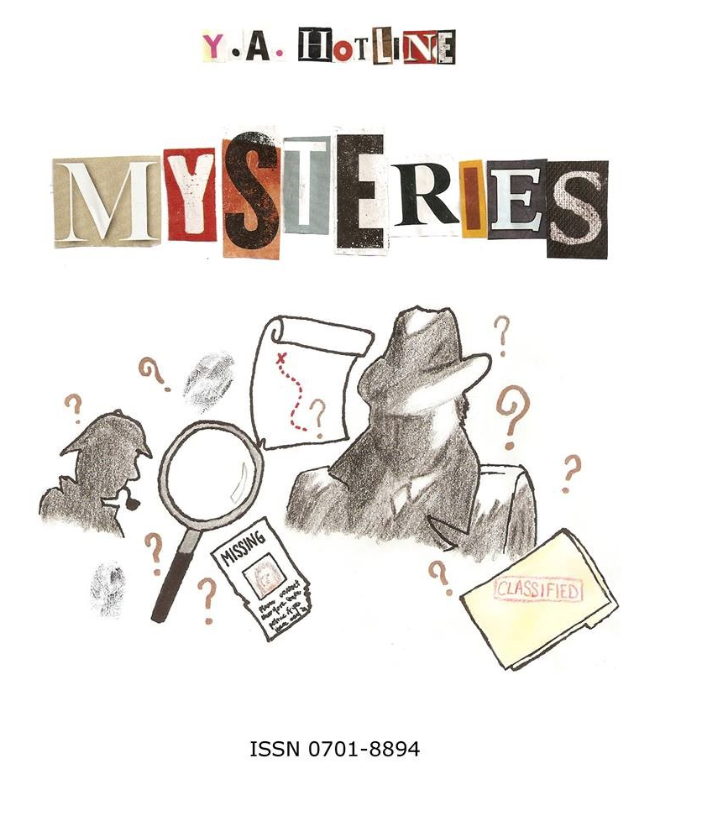
MYSTERIES
No. 108 (2019)This issue of the YA Hotline explores the prevalence of mysteries in YA literature. It explores the different books published within the genre through a thematic bibliography, book reviews, and an examination of trends. It also considers why mystery novels are often adapted into different mediums, exploring film, TV, and graphic novel adaptations. The issue also offers programming ideas related to mysteries for librarians. Finally, it includes interviews with a police officer and a YA author to gain different perspectives on mysteries.
-
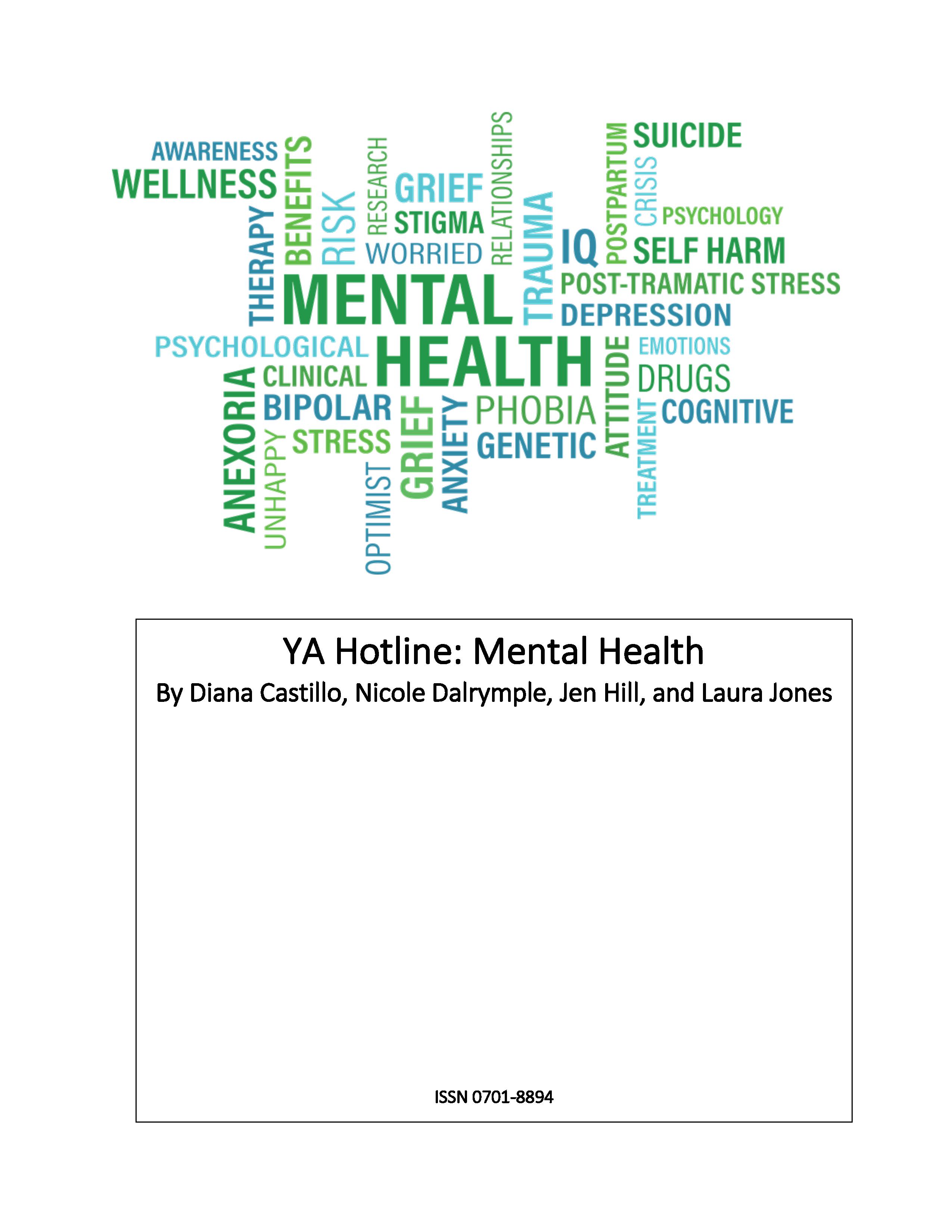
Mental Health
No. 106 (2018)This issue of the YA Hotline focuses on young adults and mental health. It is intended to assist professionals or people working alongside young adults understand more about their mental health and to better help them moving forward. Articles include interviews with professionals and teens, guides to helping professionals work with mental health needs, an annotated bibliography of YA books covering mental health, and more.
-
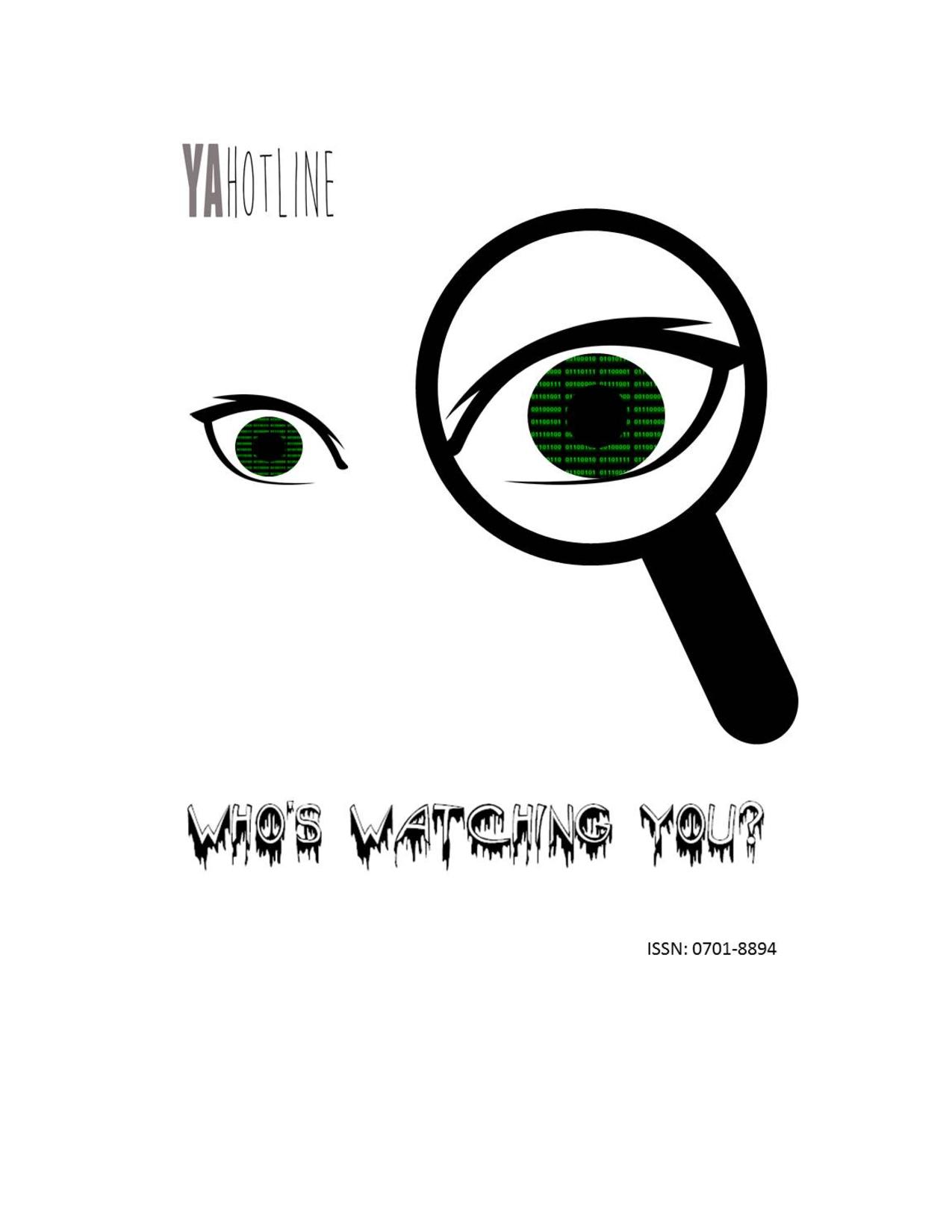
Who is watching you?
No. 103 (2016)This issue of YA Hotline showcases different genres of literature including mysteries, horror, and dystopian fiction in which “the man” is watching you, or alternatively, how you are watching someone else. Throughout this issue are articles and guides which provide resources for the selected genres as well as covering relevant topics of social media, internet security and privacy. These resources, articles, and reading materials provide options for fun, engaging and safe activities and discussions to educate youth on who could be watching them.
-
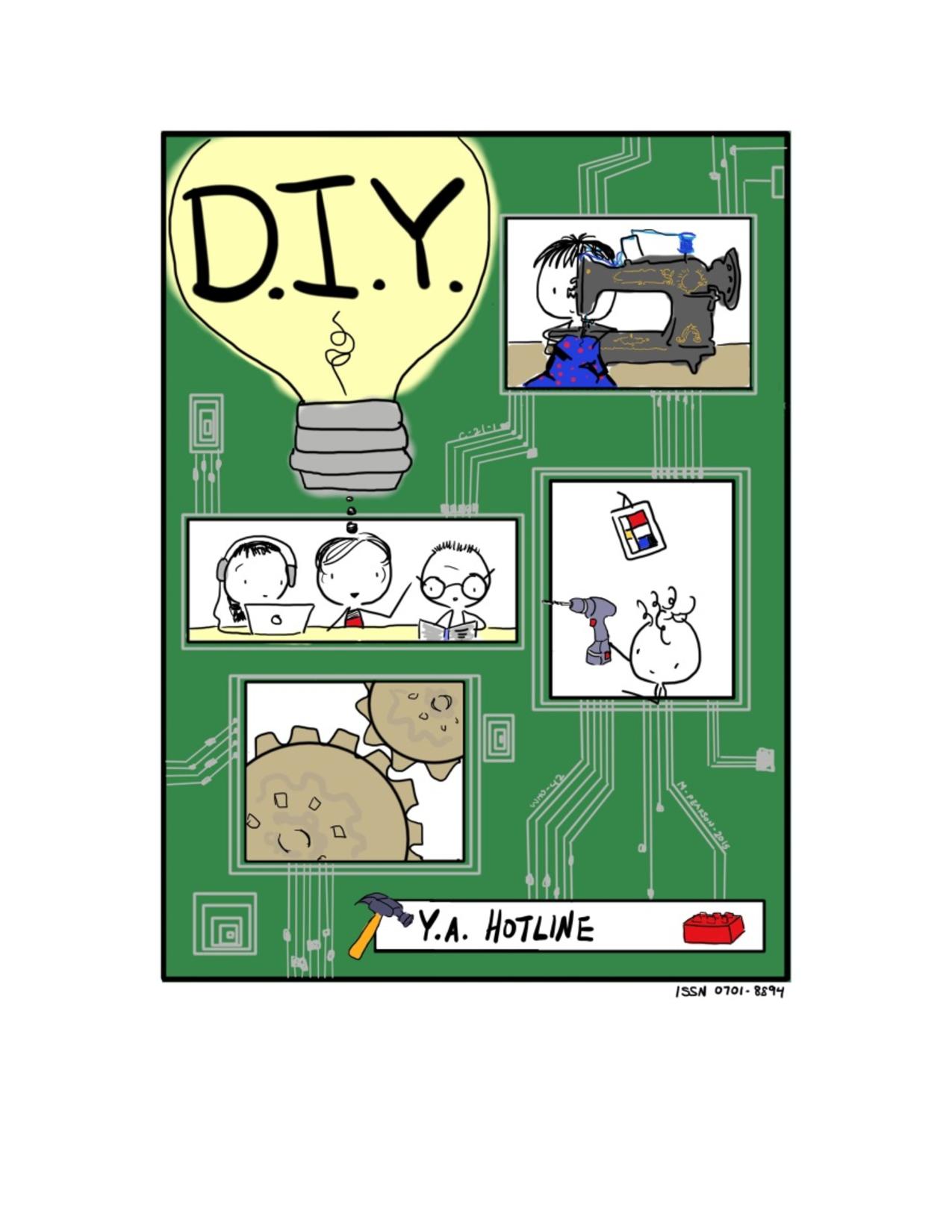
D.I.Y.
No. 102 (2016)This issue of Hotline is centered around the DIY (Do it Yourself) ethos. It includes articles on DIY programming ideas for teens, feature pieces on special kinds of DIY libraries, book lists, and craft ideas. The aim of this issue is to help librarians foster a sense of independence and agency among the youth they serve.
-
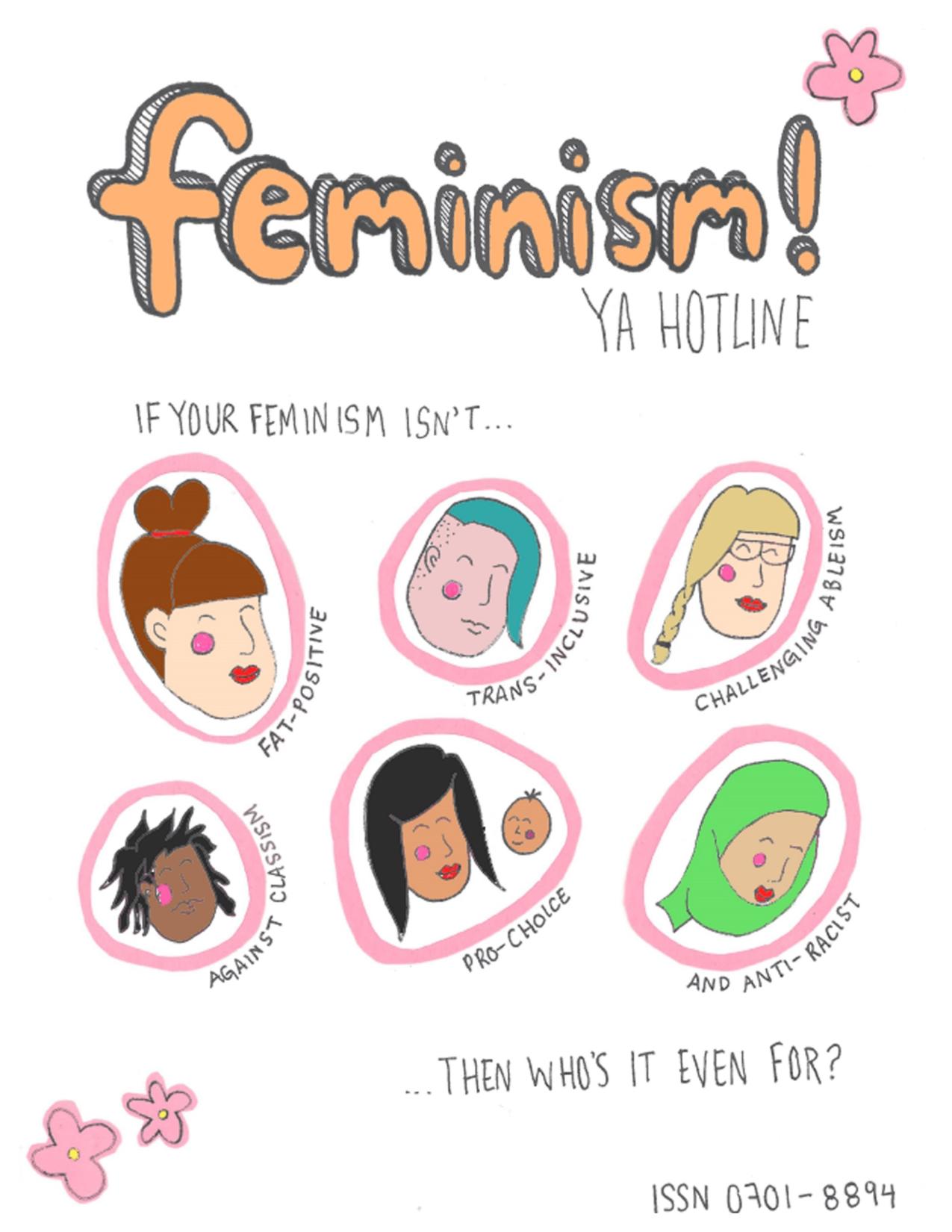
FEMINISM
No. 101 (2015)Feminism is important in public libraries and teen spaces because it ensures that we think critically about the services we offer our patrons. Because a feminist analysis recognises vast systems of oppressions, not just those centred around binary gender roles, feminism offers a powerful framework for ensuring that libraries are safe, inclusive spaces that facilitate learning, information sharing, and discussions, including on tough topics. This issue of the YA Hotline offers an introduction to intersectional feminist values as they apply to teen services, teen programming, and YA literature.
-
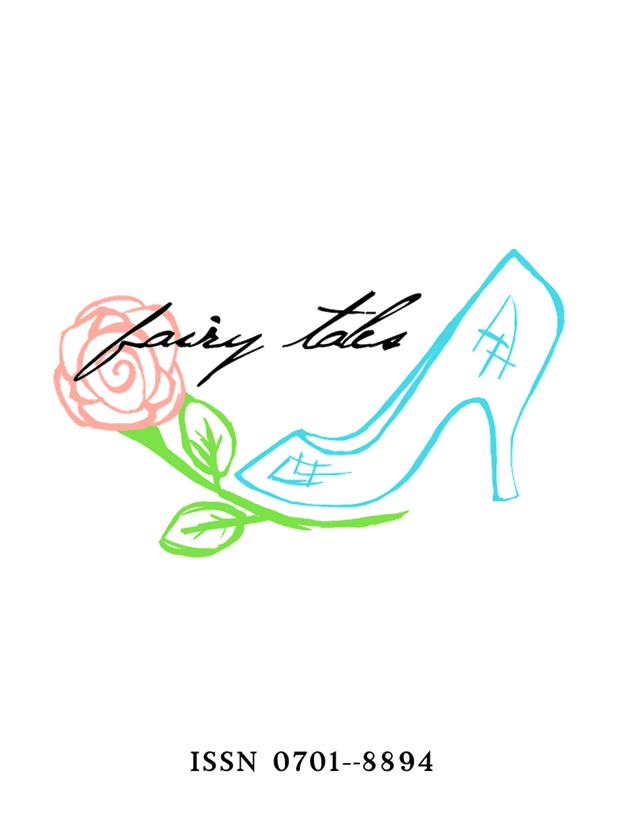
Fairy Tales
No. 100 (2015)In this issue of the YA Hotline we are examining the presence of fairy tales in today's young adult literature and media. This will include video games, comics, novels, and so forth. Also, this issue features programming and web ideas to help promote fairy tales in the library collection.

